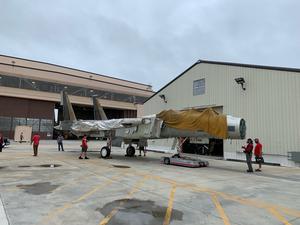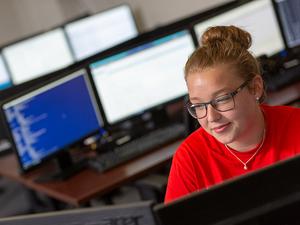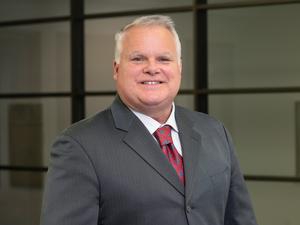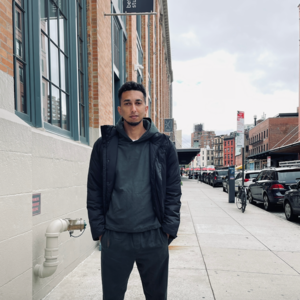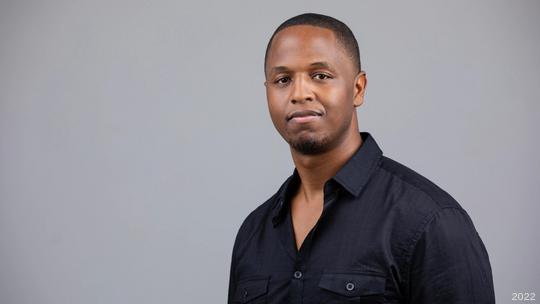
Born and raised in north Jacksonville near Ribault Senior High by parents who earned a combined annual income of $13,000, Benjamin Harvey says he spent much of his childhood just trying to survive.
Today, things look very different. After graduating from Samuel W. Wolfson Senior High School, Harvey went on to get his bachelor’s in computer science from Mississippi Valley State University and his doctorate in computer science from Bowie State University, both of which are historically Black universities. He then used those degrees to get work in data science at the U.S. National Security Agency, where he spent 10 years.
Now, Harvey has gone out on his own, launching the integration platform AI Squared last year.
Last month, AI Squared announced it had raised $6 million in a seed round led by venture capital firm New Enterprise Associates, with participation from Ridgeline Partners. The next step for the start-up is to raise $30 million in a series A round, with a $100 million valuation, which Harvey said will likely take place once AI Squared increases its annual recurring revenue from its current $500,000 to something closer to $1.5 million or $2 million. He sees the company eclipsing $1 million in 6-8 months.
To get a better sense of what his start-up does, how he’s gone about the fundraising process, and how his Jacksonville upbringing informed his entrepreneurial journey, the Business Journal sat down with Harvey.
You’ve said that you discovered the problem AI Squared was designed to solve during your decade working for the NSA. What was that problem, and how is AI Squared meant to solve it?
When you think about NSA, they bring in the most data. So, when bringing in petabytes of intelligence data on a day-to-day basis, my organization was full of 40-plus data scientists that were responsible for creating the algorithms that could, in an automated fashion, filter through that data and provide insights for decision-making to the intelligence analysts and the military war fighter.
The challenge was that 90% of the [artificial intelligence] algorithms that my team would create would never make it into an allocation. They were sitting on the shelf. So, the challenge was, how do you get the 90% of the machine learning algorithms into the applications, so that the results could be in the hands of the analysts and the military?
Really, the problem is AI integration — integrating the artificial intelligence into the applications.
Why weren’t those algorithms already integrated? Why did they end up just sitting on the shelf?
The challenge is that those capabilities are not in the workflows of those analysts. When I say workflows, I mean there’s like one, two or three tools that they use on a day-to-day basis, [and] a lot of the machine learning and AI capabilities that are built are using one-off applications, so you literally have to go to this single tool to get the results of the machine learning capability. It’s not integrated into the workflows of that end-user analyst.
So we built an integration platform that integrates into currently existing applications — we’re not building new applications, because the new applications add complexity to the workflow of that end-user analyst, and that’s where they don’t use it and it never gets adopted.
How have you been going about fundraising?
Oh, my goodness. It is a very difficult and tedious process.
There are two ends of the spectrum.
So, there are the Ivy League, Harvard, Stanford graduates, and they have the pedigree, and they have this network of investors that are willing to fund an idea just based upon the pedigree of that potential founder of an organization. Facebook and a lot of the other top technologies come from that Harvard, Boston kind of area.
If you don’t come from that environment, not only do you need an idea, but a large number of individuals that are funded are second-time founders. So you need experience, and you need traction. Not only do you need to go in and pitch, but you also need to have incubated your technology enough for them to even think about you being able to show commercialization potential.
How did growing up in Jacksonville inform your career?
My dad worked at AT&T in Baymeadows when I was growing up, and he used to bring home computers that they used to throw out. This was my exposure to computers when I was nine, 10, 11 years old — 1998, 1999, probably. My dad ended up losing his job and we had a really, really tough time after that point. My dad ended up getting sick, and he died from kidney failure when he was just in his fifties, so we went from doing pretty good to really struggling for the majority of my upbringing.
There are some tough areas in Jacksonville, and we lived on the north side. My district was in [Jean] Ribault Senior High, which, as far as test scores, [was] an “F” school. I grew up in that area, very tough area, and between drugs, sports, and rap music, those are the three things that individuals in that environment think of as far as making it out of “the hood.”
And because I had exposure to computers at a young age — thank God — and I had a brother that ended up going to college and was pursuing computer engineering, I had two seeds that were planted at a young age around the same time.
I would say the one difference that separated the path that I went down from the path of the other guys in my neighborhood was, my dad was a pastor, and he really drilled morals, ethics and values into us at a young age. That was really the difference that separated us, because we had a lot of friends that ended up in jail or dead, many of them. But we were able to go down a certain path that didn’t lead us to those destructive endpoints.
